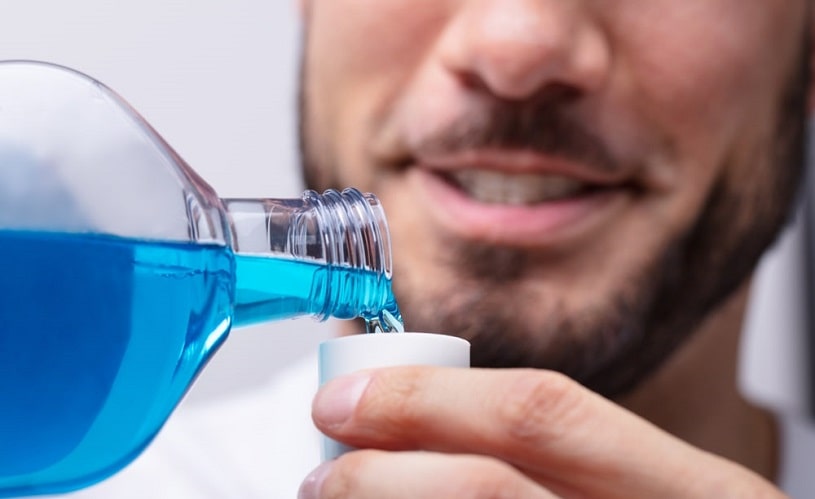Can You Get Drunk from Mouthwash? Debunking the Myth
In recent times, there has been a common query among individuals regarding the potential effects of mouthwash on intoxication. The notion of getting drunk from mouthwash has gained some attention, leading to misconceptions and concerns. In this article, we will explore the truth behind this claim and provide an informative analysis on the subject.
I. Understanding Mouthwash and Its Components
Mouthwash, also known as oral rinse, is a liquid oral hygiene product designed to enhance oral health.
It typically consists of various ingredients, including water, alcohol, fluoride, antiseptics, and flavoring agents.
While the primary purpose of mouthwash is to freshen breath and kill bacteria, the presence of alcohol has sparked curiosity and raised questions about potential intoxicating effects.

Mouthwash
II. Alcohol Content in Mouthwash
1. Quantifying Alcohol Content
Different brands of mouthwash contain varying amounts of alcohol. Typically, alcohol-based mouthwashes have an alcohol concentration ranging from 18 to 26%.
To put this into perspective, a standard alcoholic beverage like beer typically contains an alcohol content of 4-6%.
Understanding the alcohol concentration is crucial in evaluating the potential effects of mouthwash on intoxication.
2. Alcohol Absorption and Blood Alcohol Content (BAC)
a. Oral Absorption:
The mouth can absorb small amounts of alcohol, but the majority of absorption occurs in the stomach and small intestine.
Swishing mouthwash for the recommended duration (usually 30 seconds) is unlikely to lead to significant absorption.

Mouth wash
b. Blood Alcohol Content (BAC):
To reach a level of intoxication, a person's blood alcohol content must surpass a certain threshold.
Given the low alcohol content in mouthwash and limited absorption, the likelihood of achieving a high BAC solely from using mouthwash as directed is extremely low.
III. Potential Risks and Precautions
1. Ingesting Large Amounts
While the alcohol content in mouthwash is generally not sufficient to cause intoxication, ingesting large quantities can be harmful.
Swallowing excessive mouthwash can lead to alcohol poisoning, resulting in symptoms such as nausea, vomiting, dizziness, and in severe cases, respiratory issues.
It is crucial to use mouthwash as directed and avoid swallowing it.
2. Alternative Options
For individuals concerned about the alcohol content in mouthwash, non-alcoholic mouthwashes are available in the market.
These alternatives effectively promote oral health without the presence of alcohol, alleviating any concerns about potential intoxication.

Mouth wash
IV. Misconceptions and Myths
1. Confusion with Other Alcoholic Products
The misconception of getting drunk from mouthwash may stem from a confusion between oral hygiene products and other alcoholic substances.
Products such as hand sanitizers, some cough syrups, and certain tonics may contain high levels of alcohol and have the potential to cause intoxication if consumed in large quantities.
It is important to differentiate between these products and mouthwash, which is primarily intended for oral hygiene.
2. Cultural Misinterpretations
In some cultures, particularly those where alcohol consumption is restricted or prohibited, the presence of alcohol in mouthwash may create concerns.
However, it is essential to understand that the alcohol content in mouthwash is primarily for its antibacterial properties and not for recreational purposes.
The idea of getting drunk from mouthwash is largely a myth. Although mouthwash contains alcohol, the concentration is relatively low, and the absorption through oral use is limited. Following the recommended usage guidelines and avoiding ingestion of large amounts ensures that mouthwash is used safely for its intended purpose. By dispelling these misconceptions, individuals can confidently utilize mouthwash as an effective component of their oral hygiene routine.